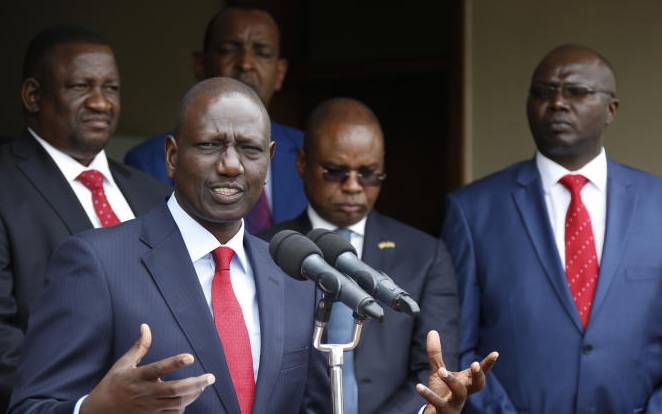
DP WIlliam Ruto gestures during a press conference at his Karen residence in Nairobi after witnessing the signing of World bank agreement with 4 Coastal counties to fund projects.[Charles Kimani\DPPS]
When labour supremo the brazen, nebulous and indefatigable Francis Atwoli recently prophesied that Deputy President William Ruto will not be in the ballot paper in 2022, ordinary minds ranted and raved. However, discerning minds went into top gear. Prophets are “caused to know”, and when this happens the prophet must “speak out” the truth not just about the prediction, but the causes and cures.